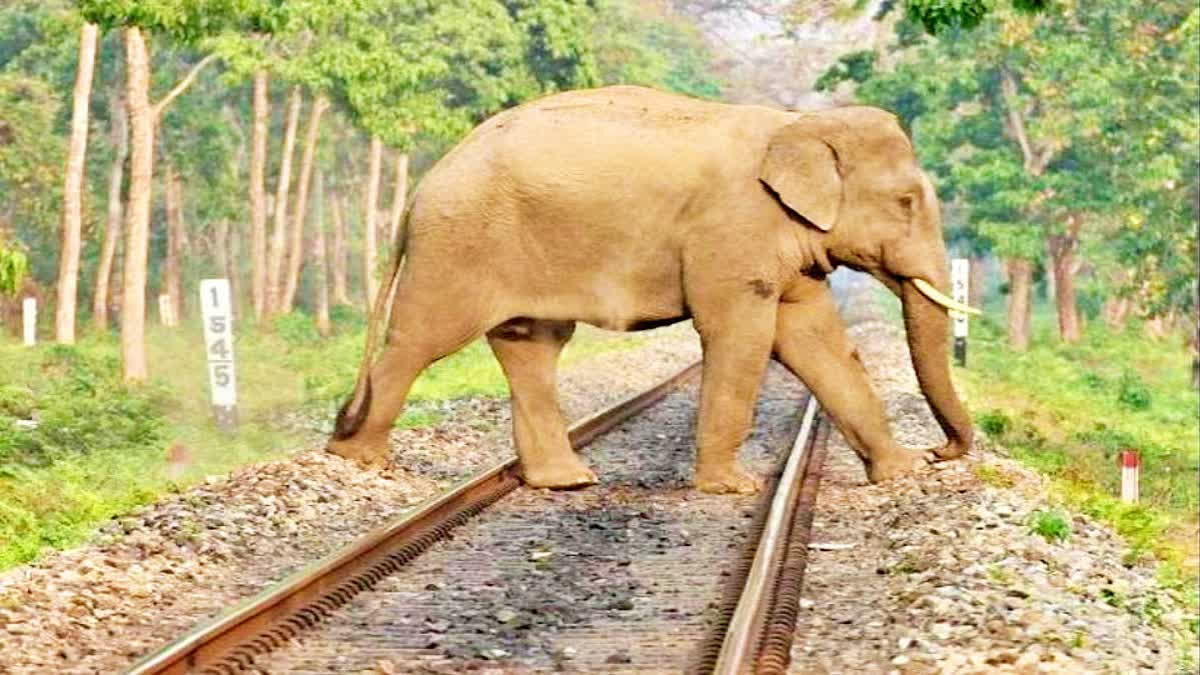Balangir: In the past three months, three elephants have died in Balangir district in Odisha raising concerns about the protection of the gentle giants while at the same time questioning efficacy of the Forest department in reducing the fatalities. The deaths have now been taken up by the National Green Tribunal (NGT) after local animal lovers and activists expressed their frustration over the lack of accountability.
Senior lawyer Bhabani Satpathy has filed a case with the NGT, alleging that the Forest Department’s negligence has led to these tragic incidents. Satpathy said, "The department has failed to provide satisfactory explanations for the deaths." He pointed out that one elephant calf, rescued from Deogaon in August, died after three days due to medical negligence, with a blockage in its esophagus. Another elephant was found dead with missing tusks, and a third reportedly died from electrocution, though the exact circumstances remain unclear.
"I demand an investigation into the deaths and accountability from the Forest Department, which is ill-prepared to handle such situations," said Satpathy. He emphasized that the rise in elephant deaths and human-elephant conflicts in Balangir is alarming, with both sides suffering losses. This is not the first time Satpathy has fought for elephant protection. In the 1990s, he successfully campaigned for the release of the Kharsel elephant, which had been kept in iron chains for years, eventually leading to its rehabilitation in the Debrigarh forest. Kharsel however died in September 2024.
It is important to note that a baby elephant was killed in a train collision near Rourkela despite warnings issued to the railway authorities beforehand about movement of a herd in the area. The accident occurred allegedly due to a miscommunication between the railways and the forest department, leading to the collision. Another elephant injured in the accident was sent to Nandankanan Zoo in Bhubaneswar, with no major injuries reported.
As many as 1,357 elephants have died across the country in the last 14 years, a Right to Information application had revealed a year back in September 2023. Of these, 898 elephants have been killed by electrocution, 228 due to hit by a train, and 191 by poachers. Alarmingly, as many as 40 elephants have been poisoned to death, the RTI reply revealed. RTI activist Hemant Gonia, resident of Haldwani, Uttarakhand, said that in the month of June, he had sought information from the Central Public Information Officer in the Prime Minister's Office.
Gonia said that the way elephants are suddenly dying in the country, questions are being raised on the functioning of the Forest Department given the heavy spending on the conservation budget. Gonia suggested that the Union Forest Environment Ministry needs to make special efforts for the protection, conservation and promotion of elephants.
Union Minister of State for Environment, Forest, and Climate Change, Ashwini Kumar Choubey, recently informed the Lok Sabha that India has an estimated population of 29,964 wild elephants, based on a 2017 estimate. Karnataka leads with the highest number of wild elephants at 6,049, followed by Assam (5,719), Kerala (5,706), and Tamil Nadu (2,761). India’s wild elephants are spread across 32 designated elephant reserves, covering approximately 76,508 square kilometers in 14 states.
Between 2018-19 and 2022-23, Assam recorded 24 elephant deaths due to train accidents, while Odisha suffered 80 deaths due to electrocution. On average, India loses more than 57 elephants annually to electrocution and over 12 elephants to train collisions.
Read More



